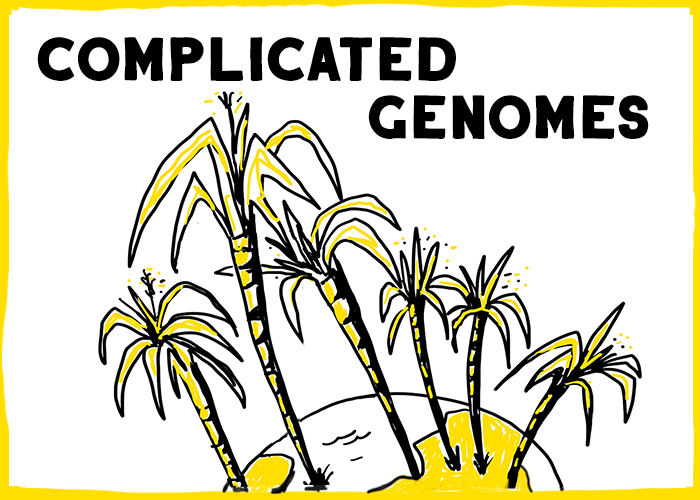Benefits double for institute
A recent gathering at HudsonAlpha of almost 80 scientists, many representing the world’s leading research organizations, produced more than good analysis, it also produced goodwill for the institute. “It was highly appropriate to bring this international group of genome scientists to a workshop at HudsonAlpha, so that everyone can see firsthand this exciting and vibrant scientific enterprise being created in Huntsville,” noted Dr. Eric Green, scientific director of the National Human Genome Research Institute. “Plus, the institute staff was remarkably gracious– taking care of every last detail.”
The late July gathering was a two-day workshop for the ENCODE Analysis Working Group. ENCODE – The ENCyclopedia Of DNA Elements – was launched by the NHGRI in 2003 to follow-up on the Human Genome Project. “It’s a large consortium of more than a dozen labs and institutes around the world that are doing large scale experiments and computational work,” said Dr. Rick Myers, president of HudsonAlpha. Myers commented that the sequence of the entire human genome was gained through the HGP, but that only a portion of the genome appears to have meaning. “We are trying to figure out which base pairs are important for biological functions.”
The human genome contains approximately 3 billion of these base pairs, which reside in the 23 pairs of chromosomes within the nucleus of all human cells. Each chromosome contains hundreds to thousands of genes, which carry the instructions for making proteins. Knowledge gained about how cells regulate genes will lead scientists to discoveries about health and disease.
Myers originally anticipated that about 40 scientists would attend, but close to twice that many participated. During the workshop, breakout groups tackled hardcore data analysis, looking for functional elements in the human genome. “It was tremendously helpful in determining where we are and how to proceed,” said Myers.
Myers was also gratified that his peers learned more about HudsonAlpha and were able to experience the geography and culture of Huntsville, the latter to include a visit to the nearby U.S. Space and Rocket Center. “They were tremendously excited and impressed to learn about the manned space program work accomplished here,” said Myers. Larry Capps, chief executive officer for the U.S. Space and Rocket Center and Dave King, former NASA Marshall Space Flight Center director, addressed the group.
Media Contact: Beth Pugh
bpugh@hudsonalpha.org
256-327-0443
About HudsonAlpha: HudsonAlpha Institute for Biotechnology is a nonprofit institute dedicated to innovating in the field of genomic technology and sciences across a spectrum of biological problems. Its mission is three-fold: sparking scientific discoveries that can impact human health and well-being; fostering biotech entrepreneurship; and encouraging the creation of a genomics-literate workforce and society. The HudsonAlpha biotechnology campus consists of 152 acres nestled within Cummings Research Park, the nation’s second largest research park. Designed to be a hothouse of biotech economic development, HudsonAlpha’s state-of-the-art facilities co-locate scientific researchers with entrepreneurs and educators. The relationships formed on the HudsonAlpha campus allow serendipity to yield results in medicine and agriculture. Since opening in 2008, HudsonAlpha, under the leadership of Dr. Richard M. Myers, a key collaborator on the Human Genome Project, has built a name for itself in genetics and genomics research and biotech education, and boasts 26 biotech companies on campus.




